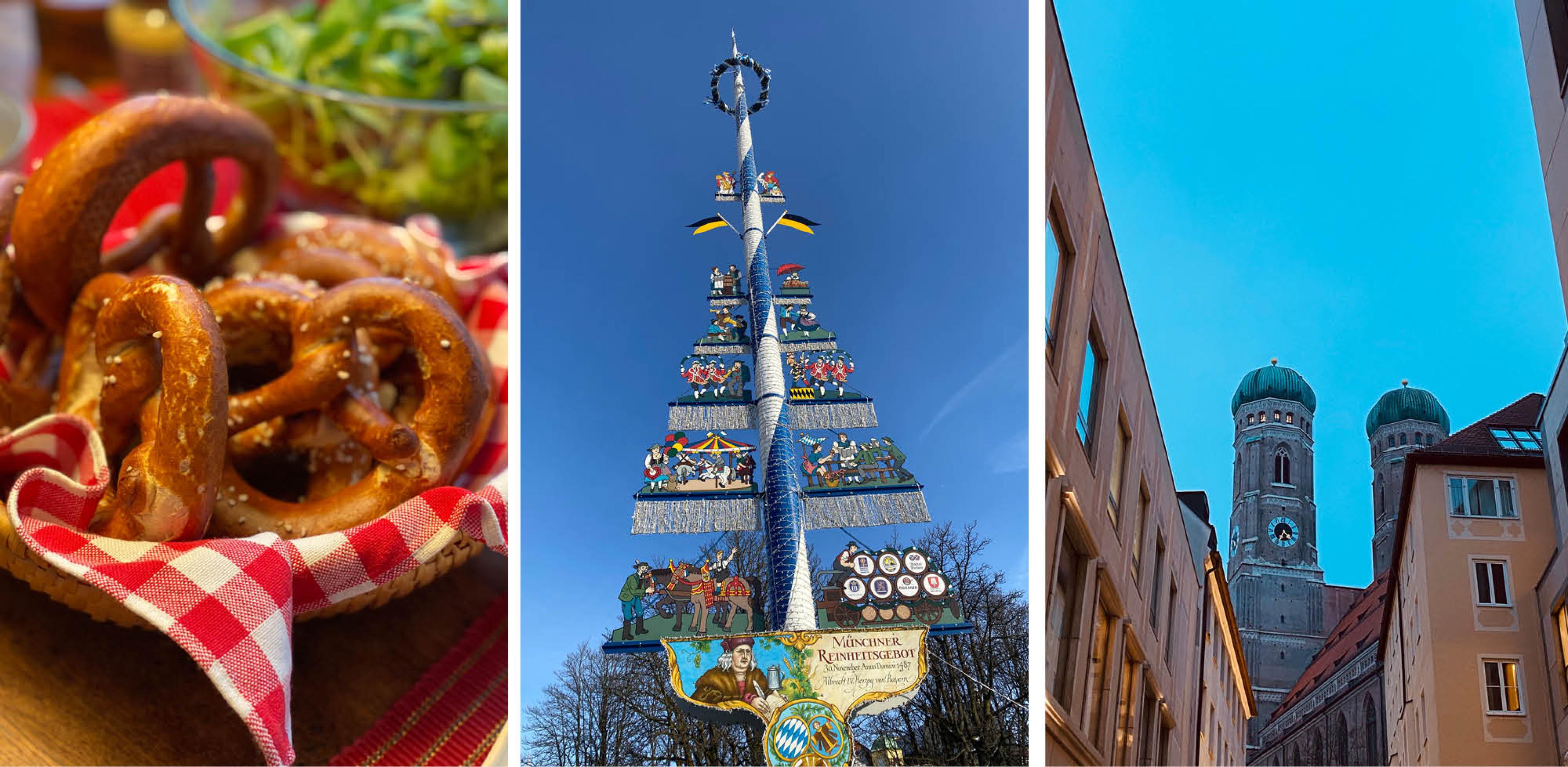Join/
Just Back From
Loving Munich
Much like Parisians, the locals of Munich (so-called Münchner) are convinced that they live in the best city in the world. They see few reasons to leave and many to rub it in: does the visitor realize how close to the Alps they are? How gorgeous hikes and skiing opportunities abound nearby? How about their charming cityscape and the law that prohibits any building to rise above the height of the Frauenkirche? What about the fantastic standard of living thanks to the many parks and beer gardens? Speaking of the latter, what about the excellent locally brewed beer famous the world over? And is one aware that Monocle voted Munich the world’s most livable city in 2010?
In short, the Münchner is known to grate on the nerves of his fellow Germans, but as any visitor to Bavaria’s capital can attest—he is also kind of right. My father and my parents-in-law hail from Munich, so I have inherited a light dosage of this patriotism. My most recent trip revealed once again why the city should top the list of a Germany visitor, or those eager to explore the stunning landscapes between southern Germany and Austria (Salzburg is just an hour-and-a-half drive away).
Munich is Germany’s third-largest city (behind Berlin and Hamburg), but its scenic historic center, which holds most of the major sites and museums, is easily explored on foot. A medieval town founded in the 12th century, Munich functioned as one of Europe’s major art centers for centuries, particularly during the 19th-century reign of Prince Regent Luitpold. The city center still has glorious medieval piazzas, beautiful churches and Art Nouveau buildings. Not all of it is original: Munich was heavily bombed during World War II (after all, this was the place where Hitler and his party first rose to prominence), but it was meticulously rebuilt. Today its red-roofed unison reminds more of an Italian town than of a major German metropolis.
Any first-time visit will kick off in the Zentrum, which centers around the Residenz, Munich’s answer to Vienna’s Hofburg and the former home of Bavarian royalty. A walking tour of this area will also lead past the large Marienplatz, with its colorful Glockenspiel, and past such churches as the Baroque Theatinerkirche or the Romanesque Peterskirche. Not to be missed during a first-day exploration is the closeby Viktualienmarkt, an incredible open-air farmers’ market, with small restaurants and shops carrying everything from spices to fresh juices and flowers. It’s a vibrant atmosphere and while it draws tourists, you will also spot chic locals and the occasional chef shopping for supplies. The area is also becoming more buzzy at night thanks to the addition of fabulous boutique Hotel Louis and its acclaimed Japanese restaurant Emiko.
Art aficionados will be very happy in Munich, which has a wealth of museums, including the terrific Alte and Neue Pinakothek, the Kunsthalle, which hosts world-class temporary exhibitions, and such privately funded collections as Museum Brandhorst and Sammlung Goetz. A more conservative, older city, Munich doesn’t have the youthful energy of a Berlin, so don’t expect a cutting-edge cultural scene. But between the acclaimed Bavarian State Opera, three orchestras—including the renowned Radio Symphony Orchestra—and a strong theater scene, Munich certainly remains one of Germany’s most coveted art centers and performances book months in advance, especially the ones in the jewel box–like Cuvillées Theatre.
Of course a much more pedestrian event puts Munich centerstage every year: the Oktoberfest originated here and every year the city virtually shuts down for two weeks of beer-drenched celebrating. If you are planning your trip to coincide, it’s best to book way in advance. The festivities are relegated to the large Theresienwiese, a large meadow outside the city center, so non-partiers are not impacted by drunken revelers. But the city overall is a lot more crowded during this time, so if the Oktoberfest is not a draw for you, it’s best to avoid these weeks.
Beyond the sites and museum, however, Munich is one of those cities where even a first-time visitor will feel encouraged to relax into its laid-back rhythm, especially during the summer. Stroll around the lovely streets of the boho-chic Schwabing district; take in the scene at one of the beer gardens in the Englischer Garten (larger than New York’s Central Park), then walk to watch locals surf in the Eiskanal [Isar river]; take a day trip out to Schloss Nymphenburg and learn how the delicate porcelain is made; sample hearty German fare at one of the Brauhäuser, and shop the independent boutiques around the Gärtnerplatz or in Schwabing.
Those in need of constant sightseeing stimulation won’t get Munich; but anyone else will fall for the city’s easy charm and, perhaps, ultimately leave agreeing with the locals that life in this German city is…well, pretty sweet.
Plan Your Trip With Us
We only feature hotels that we can vouch for first-hand. At many of them, Indagare members receive special amenities.
Get In Touch


